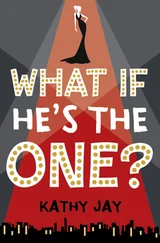Kaitlyn said, “Probably one or two more downstairs and then we’re done with this block.”
“Oy, we need a new street, something,” Gary said. “We’re sick of this block.”
“You need more time, Mark Spitz?” Kaitlyn asked.
He shook his head. He was ready. He had needed a reminder; he had received it. There was no when-it-was-over, no after. Only the next five minutes. Like all city dwellers, he had to accustom his eyes to the new horizon.
Gary zipped up the last of the corpses and lit another cigarette. He asked Kaitlyn for help bringing them down.
She shrugged. “You bag ’em, you drag ’em.”
• • •
For the first few weeks they tossed the bodies out the windows. It was efficient. The likelihood of harming passersby was infinitesimal. The unsuspecting, the caught unawares, the out for a smoke. They lugged the bodies to the sill and heaved them out. Confronted with the beggar’s slit of a safety window, they shot out the glass. Disinclined to lift the window, they shot out the glass. They awaited the sound of glass smashing into a million fragments and the splash of bodies bursting against concrete in equal measure.
It saved time and energy. They belonged to a nation enamored of shortcuts and the impulse persisted. It beat dragging the bodies down twelve flights and then humping back upstairs to resume the sweep. The higher up, the messier, naturally. In due course Disposal complained to the Lieutenant, to whatever brass at Fort Wonton was foolish enough to listen. “What’s that?” the officers asked. It was hard to hear that team through their hazmat helmets.
“Defenestration!” Disposal shouted, louder, accustomed to this indignity. Defenestration unduly aggravated their job. It was disrespectful. It was unhygienic. Frankly, it was unpatriotic. Everything inside was bullied to a lumpy slime, and the zippers oozed a trail of crimson slush on the street, in the carts, the post-pickup staging areas. And that was when the bags remained mostly intact.
Mark Spitz conceded that Disposal had a point. There had been an incident where he had been brooding on the sidewalk when a body bag burst a few feet away, splashing him with ichor and clots of grue. Gary apologized for neglecting to offer a heads-up, but it had slowed the progress of their friendship, those early weeks.
The broken windows put an end to the practice. Disposal could whine until doomsday, so to speak, about contamination risk, but Buffalo wanted the city habitable for the new tenants. Especially given the marines’ rampage through Zone One, necessary though it was. There had been no time for finesse, only the brute exigencies of clearing out thousands upon thousands of the dead. Now, with the introduction of the sweeper teams, they could proceed in a matter befitting the American Phoenix. The new era of reconstruction was forward-looking, prudent, attentive to the small details that will dividend in the years to come. The order came down: No more assaults on the windows of the fair city. The sweepers reconciled themselves to the new regulations. They took the stairs.
Mark Spitz and Gary tackled the heaviest bodies first. Per custom, they lugged, pulled, and kicked them down the stairwell, panting their way through the cinder-block intestine. Any witnesses would have moved their share of corpses and could sympathize. After a few floors, the muffled thump of skel heads bouncing against the stairs was replaced by a moist, unnerving thud. The body bags were equipped with handles on either end, but the realities of plague-era manufacture—the reclaimed factories were reconfigured to produce items outside the scope of their original purpose, often in a shoddy fashion—meant that the tenuously attached straps usually gave way after a few maneuvers. When that happened, the sweepers grabbed the bottom of the bag and felt the corpse’s mulch squish through the plastic.
Gary said, “We’re going to call it the Lasso.”
Mark Spitz didn’t answer. He had no idea what the man was referring to, so he waited for him to provide context. There was time. They were halfway to the street. The emergency lights still worked and they didn’t have to worry about renegades lurching in the darkness. The two sweepers were so noisy that any devil maundering in the stairwell would have already made itself known.
“Our skel-catcher. We’re going to call it the Lasso.”
“I thought you were going to go with the Grabber,” Mark Spitz said.
“The Lasso sounds more sophisticated.”
In his downtime, Gary worked on an instrument for neutralizing skels. He recruited Mark Spitz and Kaitlyn into the only extant focus group on the planet, spitballing for weeks. The latest iteration involved a long rod with a ratcheted collar at the business end. The collar, in turn, was attached to a mesh bag, made of the same tear- and tooth-resistant material as their fatigues. When you came across a skel, you manipulated the collar around its head, then jerked back. The collar cinched tight like handcuffs, detached from the rod, “And voilà: Skel in a Bag.” The captured monsters couldn’t bite through, or see. They were neutralized. You could do what you wanted with them.
The problem was that the only thing to do with a captured skel was to put it down.
Mark Spitz and Kaitlyn had pointed this out to Gary on numerous occasions, among their other criticisms of the invention. The skel-catcher, or You-Grab-It or Lasso, whatever name Gary settled on (there had been brief flirtation with the Gary), was useless in close quarters. It required a low density of hostiles—with two or more creatures in the area, too many variables complicated execution. It tied up both your hands so that you couldn’t pull off a last-second head shot if need be. But those were concerns of implementation. The main problem, of course, was that no one wanted a captured skel. In the early days, the government required a stock of the recently infected and the thoroughly turned for experiments, to search for a cure, cook up a vaccine, or simply investigate the phenomenon “in the name of science.” The vaccine work continued—what were they going to do, boot out the epidemiologist now that priorities had shifted to infrastructure?—and in their subterranean labs Buffalo certainly still rode hard on the centrifuges and electron microscopes, but the market for fresh skels did not exist, the odd hillbilly torture dungeon aside. No one used the word “cure” anymore. The plague so transformed the human body that no one still believed they could be restored. Sure, rumors persisted that a team of Swiss scientists were holed up in the Alps working on processes to reverse the effects, but most survivors had seen enough skels to know the verdict of the plague could not be overturned. No. The only thing to do with a lassoed skel was to put it down. As soon as possible.
Gary was undeterred. He had been making diagrams for a patent, despite the small matter of there being no patent office in the land to process it. “I’m going to be rich,” he maintained, as he sulked over his unit’s lack of enthusiasm. Spoken like a true pheenie, Mark Spitz thought. Despite other contrary vectors of his personality, Gary maintained his own reservoir of pheenie optimism, a hazy vision, after all this time, of his insertion into the dreamscape of American prosperity. There would be room enough in his fabulous mansion for chambers devoted to his dead brothers’ memory, along with the standard lap pool and 5,000 Btu gas grill. The sketches of his invention reminded Mark Spitz of cave paintings, but this was only appropriate given the culture’s precipitous regression.
“The Lasso,” Mark Spitz said. “You’re really onto something there.”
Although the sign at the exit informed them that an alarm would sound, this was not the case. They tugged the heaps across the black-and-white tile of the lobby and lurched into the slurry that passed for rain these days.
Читать дальше












